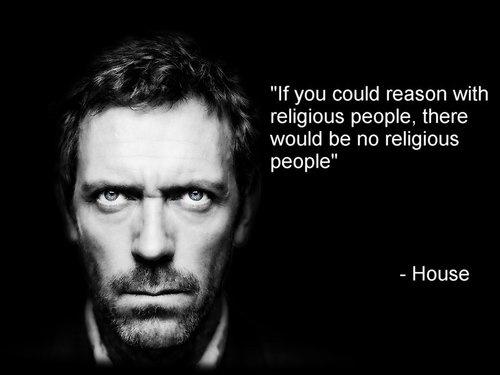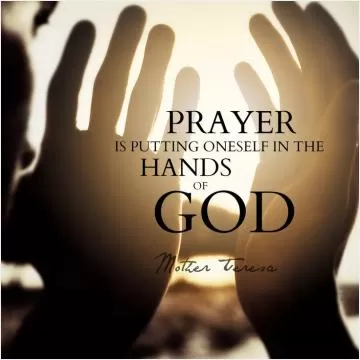If you could reason with religious people, there would be no religious people

Religious QuotesAtheist QuotesReligion QuotesFunny Atheist QuotesReligious People QuotesHouse MD TV Show Quotes
If you could reason with religious people, there would be no religious people
The statement "If you could reason with religious people, there would be no religious people" is often attributed to the famous atheist author and scientist, Dr. House. This quote encapsulates the frustration that many atheists feel when trying to engage in rational discussions with religious individuals.Atheists, by definition, do not believe in the existence of a higher power or deity. They rely on reason, evidence, and critical thinking to form their beliefs about the world. In contrast, religious people often base their beliefs on faith, tradition, and scripture. This fundamental difference in epistemology can make it challenging for atheists to have productive conversations with religious individuals.
One of the main reasons why reasoning with religious people can be difficult is the concept of faith. Faith is often seen as a virtue in religious communities, but from an atheist perspective, it can be seen as a blind acceptance of beliefs without evidence. When atheists try to engage in discussions with religious individuals, they may find that their arguments are dismissed or ignored because they do not align with the person's faith-based beliefs.
Another challenge in reasoning with religious people is the emotional attachment that many individuals have to their religious beliefs. Religion can provide comfort, community, and a sense of purpose for many people. When atheists challenge these beliefs, it can feel like a personal attack on the individual's identity and values. This emotional response can make it difficult for religious individuals to engage in rational discussions about their beliefs.
Furthermore, religious beliefs are often deeply ingrained in a person's upbringing and cultural background. These beliefs are passed down from generation to generation, making it challenging for individuals to question or reconsider their faith. When atheists try to reason with religious people, they may be met with resistance or defensiveness because the person's beliefs are tied to their sense of identity and belonging.












 Friendship Quotes
Friendship Quotes Love Quotes
Love Quotes Life Quotes
Life Quotes Funny Quotes
Funny Quotes Motivational Quotes
Motivational Quotes Inspirational Quotes
Inspirational Quotes